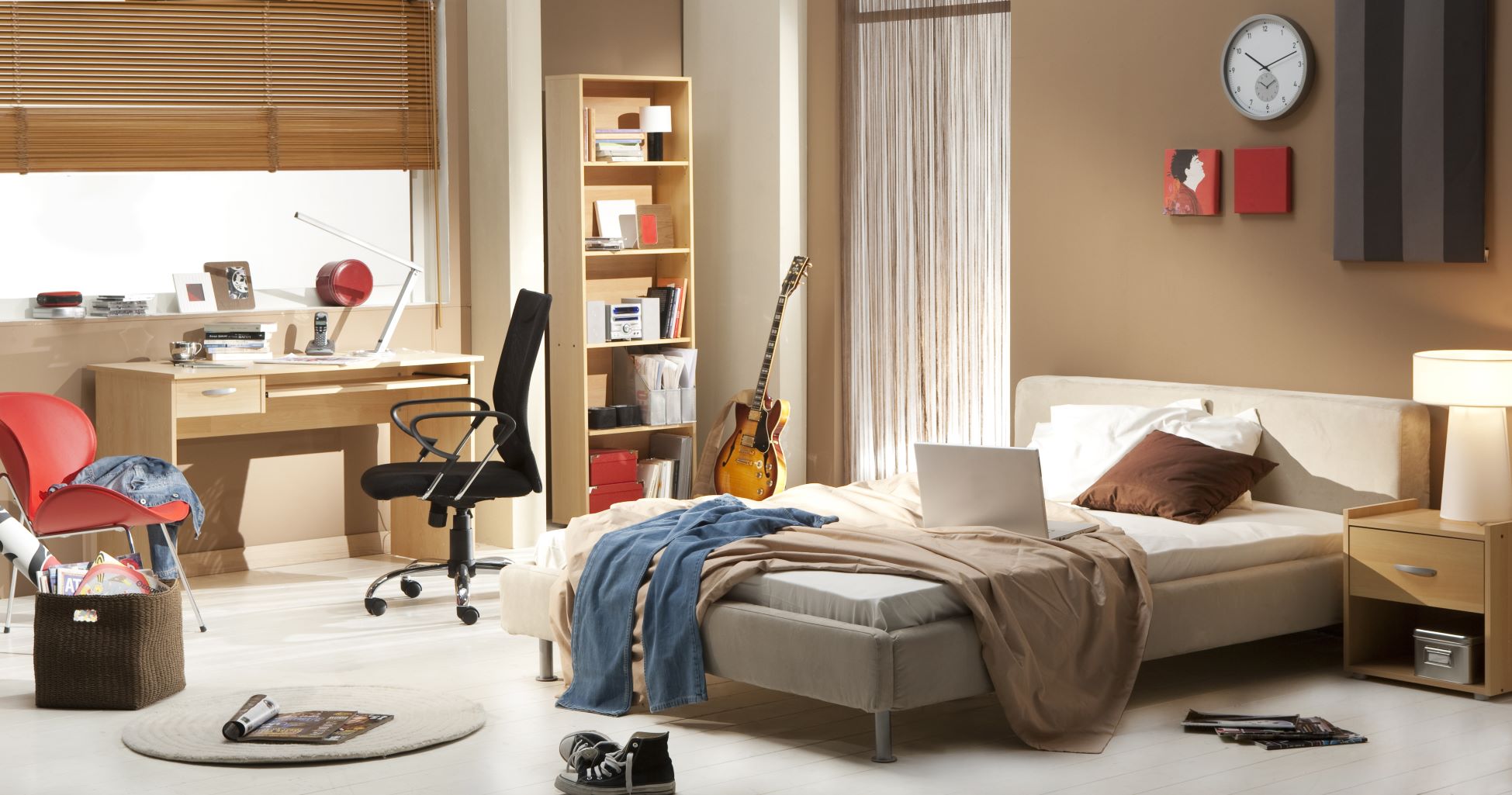Stress plays an important role in sleep quality. Many people know this, but not nearly as many have thought about how clutter in their bedroom might be causing the stress that’s affecting their sleep.
If you’ve ever gone to bed thinking about something that needs to get done, you know how hard it is to fall asleep with it on your mind. A cluttered bedroom is like that. It’s a physical representation of your to-do list, says professional organizer and best-selling author Christina Scalise.
Physical objects lying around in an unorganized state – or an excess of objects even when organized – compete for attention and prevent the mind and body from relaxing, which is exactly what it needs to do in order for sleep to occur.
Fight-or-Flight Response
Scientific studies show that clutter can trigger the release of cortisol, which is the hormone produced by the body as a fight-or-flight response, or in other words, a stressful situation.
Experts say that chronic clutter can create prolonged stress, putting the body in a state of low but perpetual fight-or-flight, which increases tension, anxiety and leads to unhealthy habits. We’ve all experienced stress, and common sense tells us that a prolonged period of stress creates wear and tear mentally and physically.

The human brain actually wants order, and one of its most important functions during sleep is to organize information gathered during the day, a process that enables us to remember and learn.
According to a 2015 study from St. Lawrence University in New York, people who have hoarding habits tend to experience more sleep difficulties than those who don’t have clutter. In another study of undergraduate students at Cornell University, researchers found that stress triggered by clutter could also trigger coping and avoidance behaviors, such as eating junk food, binge-watching Netflix and oversleeping.
Energy Zapper
Clutter also creates bad feng shui, say experts and followers of this ancient Chinese art of space arrangement to bring good energy to one’s surroundings. Even if you don’t know anything about feng shui, you’ve more than likely experienced the uncomfortable feeling of being in a room that’s very cluttered or unorganized, or the difficulty of focusing and doing work at a messy desk.

Feng shui is about energy forces and the movement of positive and negative energy in a particular environment. In Chinese, feng means wind and shui means water, both elements in nature that flow, and when in harmony, are believed to bring good fortune according to feng shui.
Three ways that clutter brings negative energy:
- Lowers air quality: Objects collect dust, and those who have clutter tend to not clean as much because it’s not easy to do with so many things lying around, which makes the dust problem worse.
- Sharp corners: Clutter in the bedroom often include books, boxes and other items that have points or sharp corners, which bring negative energy according to feng shui principles.
- The accumulation of objects blocks positive energy and disturbs the aura.
Check out this video for ways to de-clutter.

